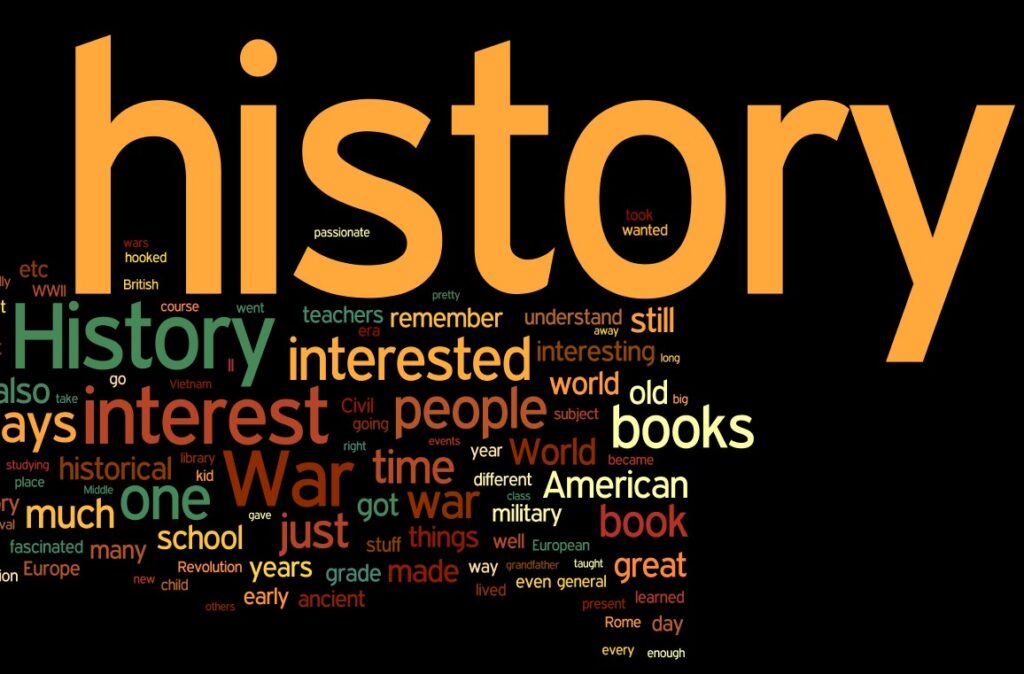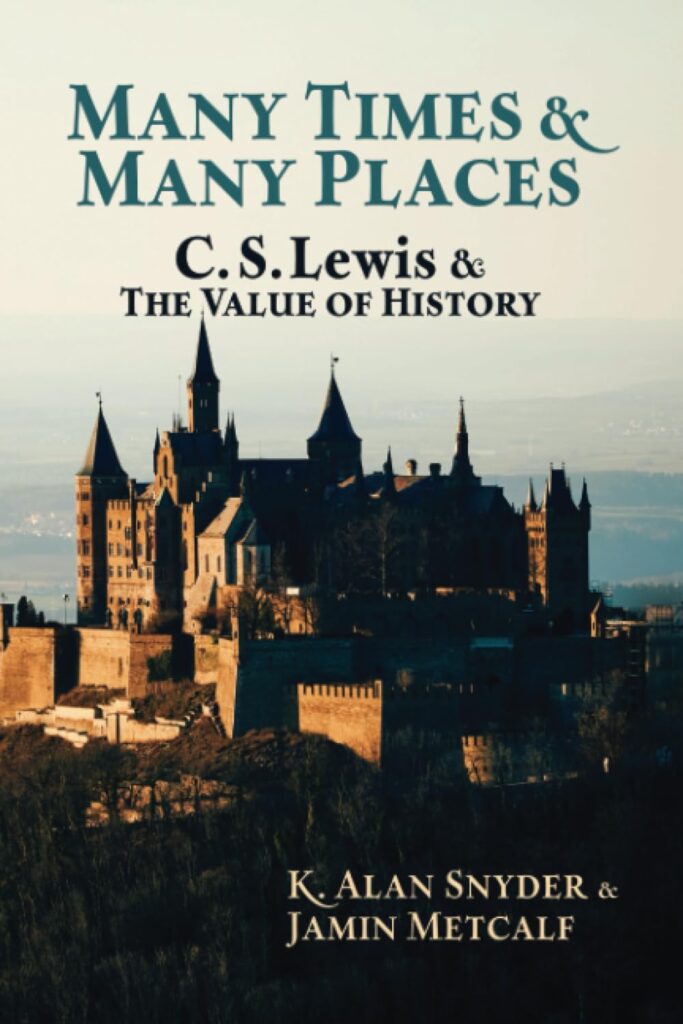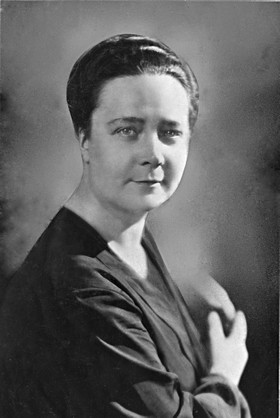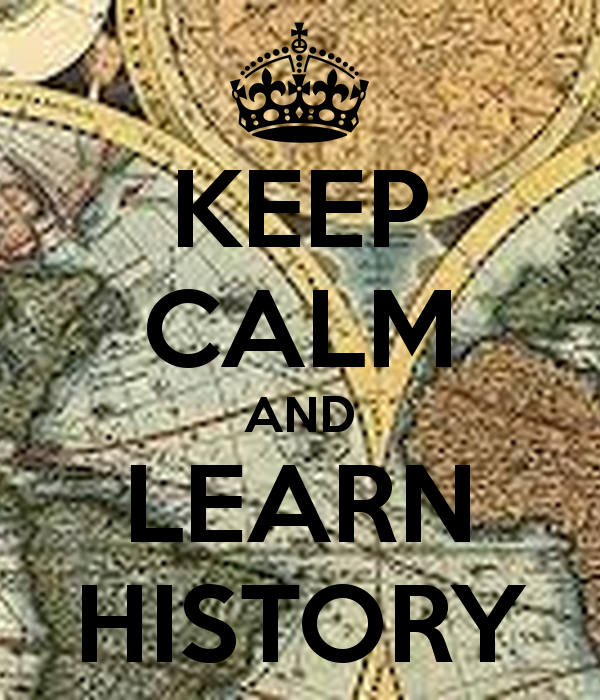I mentioned in a previous post my research into the educational philosophies of C. S. Lewis and Dorothy L. Sayers and the quest to determine how closely they may have aligned. There are many facets of education to consider when doing such research. One quite evident agreement between these two friends/colleagues is the significance of studying history. This is naturally interesting to me, as I have been a historian and professor of history for more than thirty years.
If you have been following my recent publication history, you are aware that I recently co-authored a book about Lewis and history and was gratified to speak about it at the Marion E. Wade Center in April. The cornerstone passage in the book comes from one of Lewis’s essays, “Learning in War-time,” which originally was given as a sermon in 1939 shortly after WWII began. In it, he states the following: “Most of all, perhaps, we need intimate knowledge of the past. … A man who has lived in many places is not likely to be deceived by the local errors of his native village; the scholar has lived in many times and is therefore in some degree immune from the great cataract of nonsense that pours from the press and the microphone of his own age.” That statement from Lewis formed the primary theme of the book.
While conducting research on Sayers at the Wade recently, I came across a document that shows just how aligned she and Lewis were on the subject of history. In 1941, two years after Lewis’s “Learning in War-time,” she addressed a meeting for the older boys and girls at Chatham House at the Royal Institute of International Affairs. The title of her address comes down to us as “Wiser Than My Teachers.” Her overall theme is a critique of newer “progressive” views on education. For Lewis, even those who have only read the Narnia tales will know where he stands on that topic: just consider the type of education Eustace received, as explained in The Voyage of the Dawn Treader, and the school both he and Jill attended, which Lewis skewered in The Silver Chair.
Sayers does some skewering of her own in this address, noting that the teachers of the new generation she is addressing seem to have an unlimited faith in progress and ultimate perfectibility of the people through what they believe are the proper methods of education. In her exhortation to the students, she suggests they ought to rethink the assumptions about progress and perfectibility that they have been taught. The main problem, she asserts, is the assumption that “puts all the significance of life into the future and denies the experience of the past.”
If you think closely, you will see that to deny the value of the past is to deny the value of all actual experience; since we cannot have experience of the future. As soon as it is experienced, it is already the past. To say, like Henry Ford, “all history is bunk,” is not merely shallow and arrogant; it is the denial of all value, all purpose, and all life.
That quote creates another Lewis link: sixteen years later, he wrote an essay titled “Is History Bunk?, which used the Ford comment as its basis. Henry Ford’s viewpoint was based on the belief that history is not practical, and being practical is what really matters for progress. Lewis notes, “There will always be those who, on discovering that history cannot really be turned to much practical account, will pronounce history to be Bunk. Aristotle would have called this servile …; we, more civilly, may christen it Fordism.”
Sayers continues her challenge to the new generation by informing them that their education will never tell them about the future. She understands that they all feel that they are “wasting time in school learning about the past.” Yet they need to grasp an essential fact. “You can never understand the present except by your knowledge of the past, because the past is experience. You cannot interpret the past except in relation to the present, but in order to do that, you must know the past first.”
I think of all the years I’ve taught history. In a couple of my teaching experiences, I’ve had students who were eager to delve into the past and learn. However, those were either the history majors or students who had come back to earn a master’s degree that might put their Christian faith into action in our society. The contrast, which I faced all too often, was a classroom full of undergraduates who were required to take a history course and sought to get it out of the way as painlessly as possible. Sayers, in this address, is saying things I have echoed many times. And here’s how she wraps up her talk.
There comes a moment when all the things that you have learned by rote, those things which you have just learned as lessons, are suddenly seen in the light of the present to be not just stories about the past but glimpses of the universal truth of things; and it is only when you really do know the past that this mutual illumination of the past and present really occurs, and that it why is is necessary to begin when you are young, because we have not very much time later on for learning about the past.
Lewis-Sayers-history: just one aspect of an educational philosophy, yet a quite significant one. Meanwhile, my research continues.




